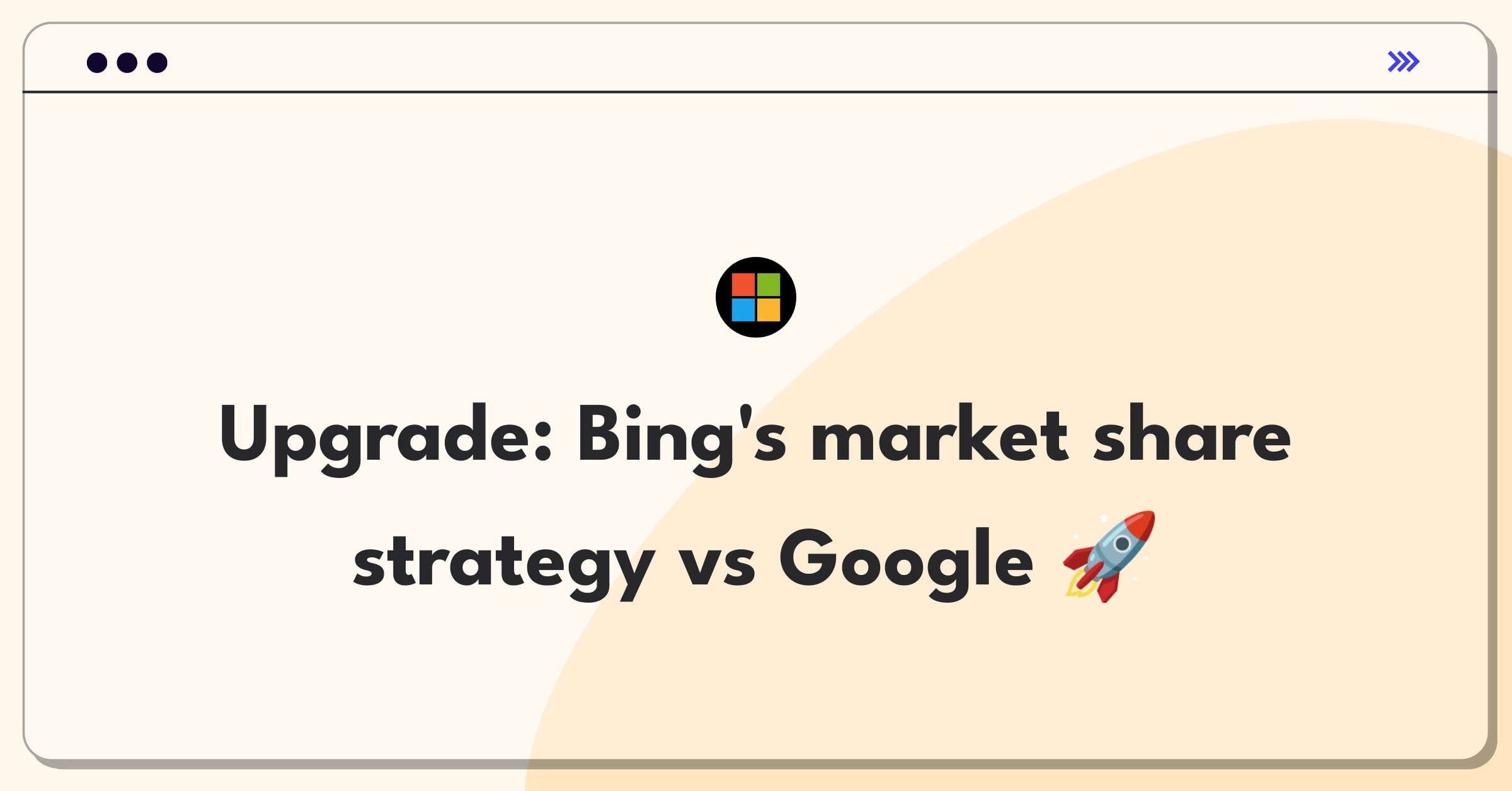Certainly, I'll provide a detailed, strategic answer to the question about taking over 5% of Google's search market share as if I were a seasoned VP of Product interviewing for a senior product leadership role at Bing. I'll structure my response according to the guidelines you've provided, using a first-person perspective and demonstrating deep product thinking and leadership.
Introduction
The strategic challenge before us is to capture 5% of Google's search market share for Bing. This is a significant undertaking that aligns with Microsoft's broader objectives of expanding its digital services ecosystem and increasing its footprint in the search market. To address this challenge, I'll outline a comprehensive strategy that focuses on differentiation, user acquisition, and retention. My approach will cover market analysis, product vision, strategic initiatives, execution planning, and risk management.
Tip
Throughout this discussion, I'll ensure our strategy aligns with Microsoft's overarching goals of innovation, user-centric design, and leveraging its existing technology stack to create a compelling search experience.
Step 1
Clarify the Strategic Goals (3-4 minutes)
Before diving into the strategy, I'd like to clarify a few key points to ensure our approach is aligned with Bing's current position and Microsoft's priorities.
Why it matters: This determines whether we prioritize aggressive growth tactics or focus on sustainable, long-term strategies. Expected answer: Growth stage, with a focus on expanding market share and integration with Microsoft's ecosystem. Impact on approach: Would emphasize scalable growth strategies while building on Microsoft's strengths in enterprise and productivity tools.
Why it matters: Helps tailor our strategy to specific user needs and pain points. Expected answer: Targeting knowledge workers, students, and enterprise users who value integration with Microsoft products. Impact on approach: Would focus on enhancing search capabilities for professional and academic contexts, leveraging Microsoft's strengths.
Why it matters: Identifies areas where we can differentiate or need to catch up technologically. Expected answer: Strong in AI integration, particularly with recent advancements in ChatGPT, but still catching up in some areas of search accuracy and speed. Impact on approach: Would emphasize AI-driven features and integration with Microsoft's AI capabilities as a key differentiator.
Based on these clarifications, I'll proceed with the assumption that Bing is in a growth stage, focusing on knowledge workers and enterprise users, with strong AI capabilities that we can leverage as a key differentiator.
Subscribe to access the full answer
Monthly Plan
The perfect plan for PMs who are in the final leg of their interview preparation
$99 /month
- Access to 8,000+ PM Questions
- 10 AI resume reviews credits
- Access to company guides
- Basic email support
- Access to community Q&A
Yearly Plan
The ultimate plan for aspiring PMs, SPMs and those preparing for big-tech
$99 $33 /month
- Everything in monthly plan
- Priority queue for AI resume review
- Monthly/Weekly newsletters
- Access to premium features
- Priority response to requested question


.png)